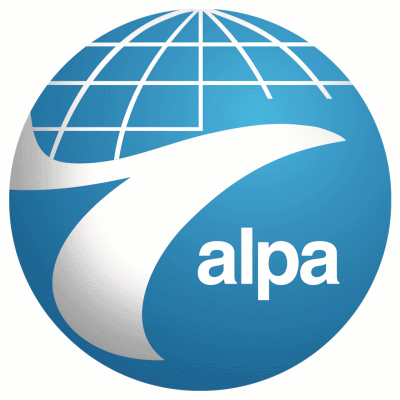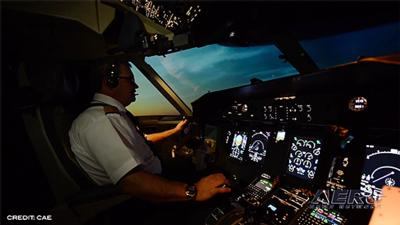Sat, May 21, 2022
Operational Ramifications Will Increase Costs and Introduce Unnecessary Risk
At the 130th Regular Executive Board of the Air Line Pilots Association, Int’l (ALPA), pilot leaders adopted a resolution opposing any attempts to increase the retirement age for professional airline pilots. The Federal Aviation Administration (FAA), at the direction of Congress with the 2007 Fair Treatment for Experienced Pilots Act (P.L. 110-135), and the International Civil Aviation Organization (ICAO) currently mandate that airline pilots in multi-crew operations must retire at age 65.

“This discussion is yet another attempt to distract the conversation from the real issue which is the failure of airlines to deliver on a key goal of the multibillion-dollar relief plan Congress provided them during the pandemic which was to effectively manage air-service operations as travel resumes,” said Capt. Joe DePete, ALPA president. “ALPA strongly opposes this proposed legislation as there is no reason to change the retirement age today and doing so would only increase costs for airlines as well as introduce unnecessary risks to passengers and crew alike.”
Increasing the retirement age will have significant unintended consequences and will displace pilots. Those airline pilots over 65 will be forced to leave the most desirable international routes to bid for domestic ones because the international age limit set by ICAO is 65. When age 65+ airline pilots return to domestic-only flying, they will then displace more junior pilots and both cohorts may require training on different aircraft, adding to the training costs of air carriers. Furthermore, most regional airline pilots leave the regional industry long before age 65 for more lucrative jobs at mainline or low-cost carriers or other opportunities. Therefore, the pool of domestic-service pilots will not increase appreciably without additional training costs or disruptions.

“ALPA is prepared to collaborate with anyone who comes to the table, in good faith, and work together to help our industry navigate this challenging period. However, we will not allow anyone to exploit this current moment to divert attention away from their mismanagement of the pandemic relief, while attempting to weaken aviation safety,” added DePete.
Currently, many U.S. airlines are claiming they cannot hire pilots fast enough as the aviation industry recovers from the COVID-19 pandemic and air travel demand rebounds. In a recent letter to the lobbying organizations for most U.S. carriers, ALPA highlighted the significant rise in recent flight delays and cancelations plaguing U.S. carriers despite receiving $63 billion in taxpayer subsidies. While a few airlines have rightly admitted that their failure to plan has resulted in pilot training backlogs and operational meltdowns, others are trying to use this crisis of their own making to weaken safety regulations that make certain pilots are properly qualified and trained.
More News
Circle To Runway (Runway Number) Used by ATC to inform the pilot that he/she must circle to land because the runway in use is other than the runway aligned with the instrument appr>[...]
Aero Linx: National Aviation Safety Foundation (NASF) The National Aviation Safety Foundation is a support group whose objective is to enhance aviation safety through educational p>[...]
At Altitude Of About 250-300 Ft Agl, The Airplane Experienced A Total Loss Of Engine Power On November 6, 2024, at 1600 central standard time, a De Havilland DHC-1, N420TD, was inv>[...]
From 2009 (YouTube Edition): Three Hour Flight Was 'Flawless' -- At Least, Until Mother Nature Intervened For anyone who loves the aviation business, this was a VERY good day. Afte>[...]
Also: AMA Names Tyler Dobbs, More Falcon 9 Ops, Firefly Launch Unsuccessful, Autonomous F-16s The Air Force has begun ground testing a future uncrewed jet design in a milestone tow>[...]
 ANN's Daily Aero-Term (05.05.25): Circle To Runway (Runway Number)
ANN's Daily Aero-Term (05.05.25): Circle To Runway (Runway Number) ANN's Daily Aero-Linx (05.05.25)
ANN's Daily Aero-Linx (05.05.25) NTSB Prelim: De Havilland DHC-1
NTSB Prelim: De Havilland DHC-1 Classic Aero-TV: The Boeing Dreamliner -- Historic First Flight Coverage
Classic Aero-TV: The Boeing Dreamliner -- Historic First Flight Coverage Airborne-NextGen 05.06.25: AF Uncrewed Fighters, Drones v Planes, Joby Crew Test
Airborne-NextGen 05.06.25: AF Uncrewed Fighters, Drones v Planes, Joby Crew Test




